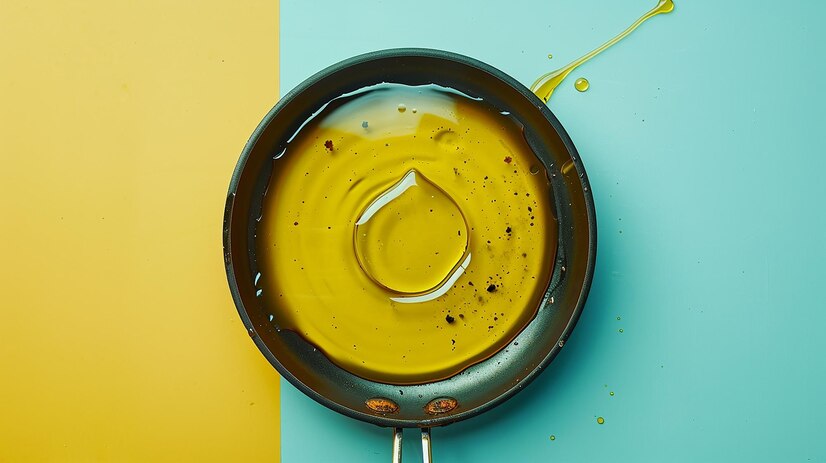A Sichuan hotpot restaurant in China has sparked controversy after being exposed for using a practice that many find both fascinating and disturbing. The concept revolves around repurposing leftover oil from diners’ meals, known locally as “saliva oil,” and blending it with fresh oil to create the base for future dishes.
This practice has generated intense debate about its ethical implications and the potential risks to public health. The viral nature of the story has caught the attention of diners and the culinary community alike especially in an era where sustainability in food practices is increasingly prioritized.
As the restaurant’s story continues to spread, the conversation surrounding this innovative restaurant practice has intensified. The focus on this controversial restaurant concept raises questions about the balance between sustainability and consumer trust in the food industry.
Background of the Controversy
The restaurant at the center of this debate is located in Sichuan Province, China where hotpot dishes are a beloved food tradition. The controversial practice of recycling oil from diners’ meals began as a way to enhance the flavor of subsequent hotpot dishes. Known as “saliva oil,” the mixture involves combining used chili oil from the remains of previous meals with fresh oil to form a new soup base.
While the restaurant owner, surnamed Chen, has defended this practice as a means of improving flavor, authorities were quick to intervene. The Nanchong Market Regulation Administration discovered the use of recycled oil during an investigation prompted by a tip-off from a concerned diner.
In total, authorities seized over 11 kg of recycled beef tallow, an ingredient used in Sichuan’s hotpot base. Despite the legal restrictions on reusing leftover ingredients under China’s Food Safety Law (2009), the restaurant continued the practice for months citing it as a necessary step to “improve the soup’s flavor” and combat declining sales
.
The Culinary Innovation Debate
The practice of repurposing leftovers for new dishes is not new to the food world, but it raises several important questions. Is this a sustainable innovation, or does it cross ethical boundaries? While some argue that the reuse of oil aligns with sustainability goals, others see it as an unacceptable risk to hygiene and health.
In the global culinary landscape, many restaurants have experimented with food recycling, reusing ingredients in innovative ways to reduce waste. However, recycling oil, particularly from dishes containing bacteria or viruses, introduces a different set of concerns. While some defend the practice as an acceptable culinary tradition that enhances flavors, others worry it may encourage unsafe practices that can compromise public health.
The restaurant’s claims that saliva oil improves the flavor of the hotpot raises another point: could this practice be an attempt to enhance food beyond traditional methods, or is it simply a reflection of desperation during a difficult period for the restaurant?
Public and Expert Reactions
The public’s reaction to the “saliva oil” controversy has been divisive. On social media platforms, diners have expressed mixed opinions—some defend the practice as part of local food culture, while others have condemned it as a serious health risk. One diner pointed out, “The hotpot without old oil isn’t as delicious,”.
Food safety experts, however, have expressed serious concerns about the practice. They argue that reusing oil can lead to the proliferation of harmful bacteria and other contaminants which could lead to foodborne illnesses. Several experts pointed out that any reused oil should be properly filtered and heated to a high temperature to minimize the risks a step which the restaurant reportedly failed to implement
Restaurant owners, including Chen have responded by acknowledging their use of recycled oil but they assert that it is a common practice in some parts of China. They argue that when used correctly the old oil improves the taste profile of hotpot dishes and that customers are well aware of its use. However, this explanation hasn’t quelled the concerns about hygiene and the restaurant now faces legal consequences.
Cultural and Ethical Perspectives
The use of “saliva oil” touches on cultural practices that may be unfamiliar to outsiders but are more accepted locally. In Sichuan, the idea of using leftover oil to enhance flavors in future meals is not widely viewed as unusual. The region’s food culture emphasizes bold, rich flavors, and the use of reused oil is seen by some as a necessary element in creating the complex profiles characteristic of traditional hotpot dishes.
However, the ethical concerns surrounding this practice cannot be overlooked. In a modern culinary context, recycling ingredients, especially oil, is often seen as crossing ethical boundaries, particularly when it comes to food safety and hygiene. This case serves as a reminder of the fine line between cultural tradition and food safety standards, which are regulated to ensure public health. While some regions may accept such practices as part of their culinary heritage, others may view them as unsafe or unethical.
Impact on the Restaurant Industry
This controversy could have ripple effects throughout the restaurant industry, particularly regarding sustainability and consumer trust. As the restaurant industry increasingly faces pressure to reduce food waste and adopt more sustainable practices, this controversial concept could either spark new trends or serve as a cautionary tale.
For many, the balance between sustainability and hygiene is a delicate one. While reusing food waste or leftovers might appear to be a sustainable solution, it also requires careful attention to health standards. The incident highlights the need for clear regulations around food reuse in restaurants, especially in light of the growing demand for transparent and ethical food practices
The case also raises questions about whether similar practices will be adopted by other restaurants. While some may view this as a clever way to enhance flavors and reduce waste, others may see it as a liability that could damage their reputation or lead to legal consequences.
Future Outlook for the Restaurant
As the investigation into this restaurant unfolds, its future remains uncertain. Will the backlash lead to a shift in how they operate, or will they double down on their controversial practices? It’s possible that the restaurant could modify its approach to food reuse introducing safer methods or abandoning the practice entirely to regain public trust.
Looking ahead, it is conceivable that food reuse in restaurants may become more widely accepted, but only if it is accompanied by strict hygiene standards and transparent practices. Restaurants that can innovate while maintaining high food safety standards may pave the way for a broader acceptance of such techniques in both fine dining and casual restaurants.
Conclusion
The story of the controversial “saliva oil” restaurant serves as a powerful reminder of the complexities surrounding innovation in the restaurant industry. While the use of leftover oil may be seen as an innovative way to enhance flavor and reduce food waste, it also raises important questions about food safety and ethics. Balancing sustainability with hygiene standards will be crucial as the restaurant industry continues to navigate the ever-evolving expectations of consumers and regulators alike. This incident might very well redefine restaurant practices globally, encouraging a shift toward more responsible and transparent food recycling practices.




